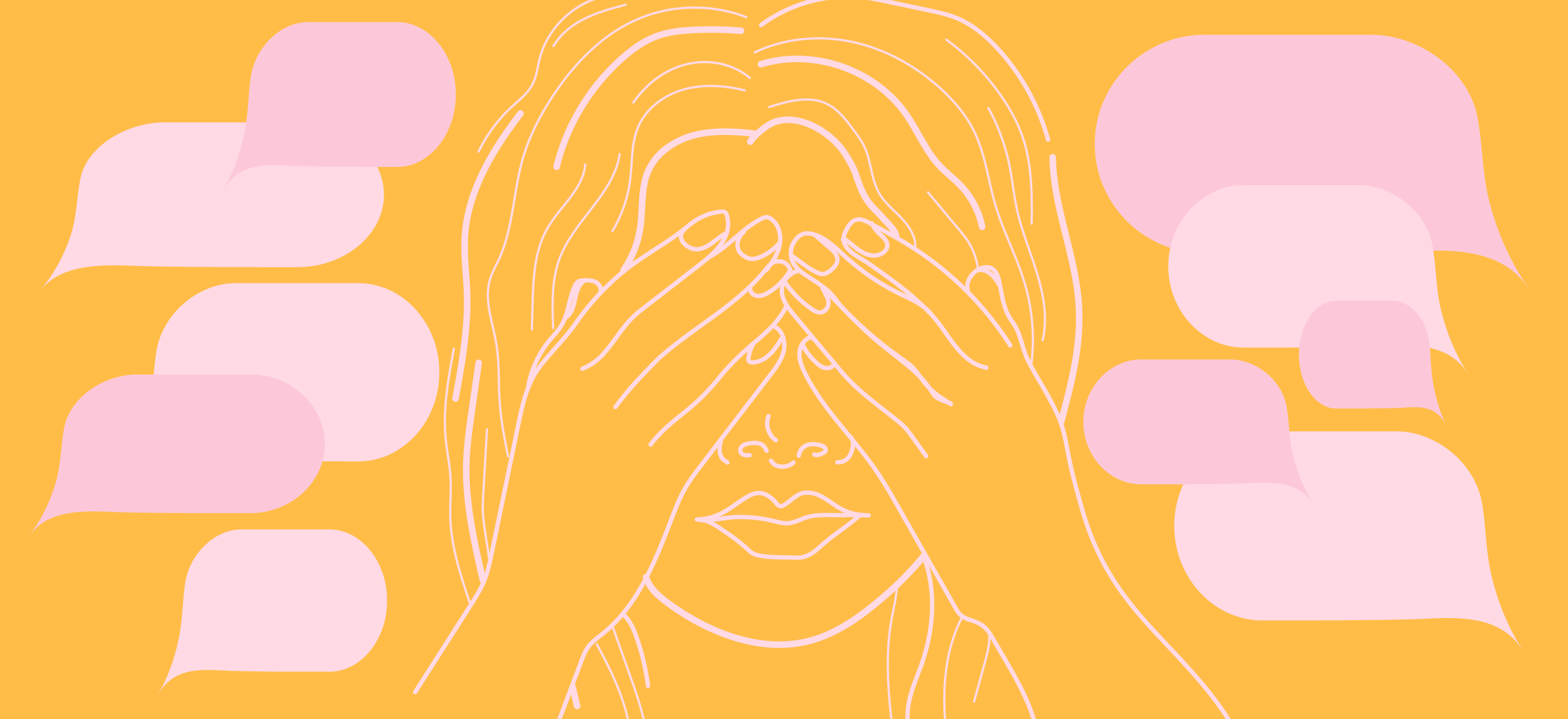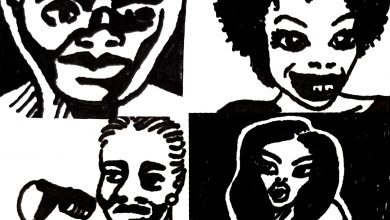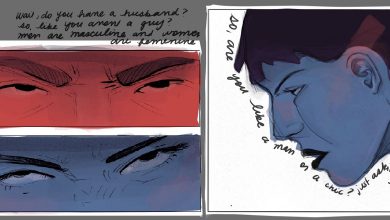Feminism 101: What Are Microaggressions?

Illustration by Sara Haas.
What are microaggressions?
As the name suggests, microaggressions are small, common actions or phrases that implicitly demean or isolate a group of people on the basis of their membership in a particular marginalized group. Psychology Today defines microaggressions as “everyday verbal, nonverbal, and environmental slights, snubs, or insults, whether intentional or unintentional, which communicate hostile, derogatory, or negative messages to target persons based solely upon their marginalized group membership.” Although microaggressions are commonly used with reference to race, women and other members of marginalized groups can also experience microaggressions.
What are some examples of microaggressions?
Microaggressions can manifest in many different ways. This list is more extensive, but here are a few specific examples:
- Asking a person of color where they’re from (but no, really?). This insinuates that people who aren’t white are perpetual foreigners in their country.
- Racial colorblindness. Although you may have good intentions, saying “I don’t see race,” or “We are all a part of the human race” is unproductive when confronting differences, and it erases the rich cultural identities of people of color.
- Saying “you’re very [positive trait] for a [marginalized group],” implying that other members of the marginalized group as a whole are somehow lesser.
- Locking the doors of the car when going through “a rough neighborhood” or clutching a bag tighter upon seeing a person of color. This assumes that people of color or people of a certain class are inherently dangerous.
Microaggressions, unlike outright expressions of racism, are much harder to confront because they seem like innocuous statements or actions. The person who receives these microaggressions may feel insulted or offended, but may not know how to address it because the person who perpetuates these microaggressions may not know they even said or did something wrong.
So what?
Although microaggressions may seem like small, harmless statements, prolonged exposure to microaggressions can have serious physical and psychological consequences. These kinds of statements occur often, sometimes every day, and because they seem innocent (if ignorant), they often go without critique. Especially since it can be difficult to directly confront the perpetrator, people of color report feeling stressed after facing these microaggressions, and because microaggressions are constantly present, this can lead to chronic stress. Chronic stress is known to contribute to physical ailments, such as muscle pain and high blood pressure, as well as mental health issues such as anxiety and depression. Indeed, qualitative studies have suggested a link between the amount of microaggressions experienced and long-term physical and mental health issues.
It is clear that microaggressions have very profound effects on people of color, women, and other marginalized groups. Because microaggressions often occur as a result of implicit biases, they are harder to recognize and therefore harder to confront; however, making the effort to learn about and recognize microaggressions for what they are when they occur is a crucial first step both in learning how to stop perpetuating them and also learning how to cope with them.
Further Reading




